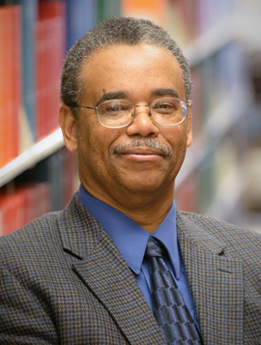|
Black American
Reactions to Lincoln’s Death Topic of Lourdes History
Lecture
Special to The Truth
Lourdes University is pleased to announce its 2014
Distinguished Lectureship in American History & Culture,
“The Reaction of Black Americans to Lincoln’s Death” on
Thursday, March 6, at 7 p.m. in the Franciscan Center. Guest
lecturer is Leonne M. Hudson, PhD, associate professor of
history at Kent State University.
|
 |
|
Leonne M. Hudson is
associate professor of history and the faculty advisor to
Phi Alpha Theta at Kent State University. He received his
B.A. at Voorhees College and his M.A. and Ph.D. degrees at
Kent State University. Hudson's specialty is 19th Century
U.S. history, though he has also extensively researched the
Mexican War and the Civil War era, particularly the military
contributions of black troops to the Union effort.
Currently, he has a research project in progress on the
reaction of black soldiers to the death of Abraham Lincoln.
His published works include: Company 'A' Corps of
Engineers (U.S.A., 1846-1848) in the Mexican War, and
The Odyssey of a Southerner: The Life and Times of Gustavus
Woodson Smith.
When Abraham Lincoln was called by the angels to make his
“sacrifice upon the altar of freedom” on April 15, 1865, the
Union felt it had lost its most powerful and elegant voice.
Lamentations of grief were said to have permeated every
corner of the nation, including in the Black American
community which was plunged into deep morning for the man
whom they had come to admire as their Savior, friend, and
protector. Many freedmen wondered aloud what would happen to
them in the wake of Lincoln’s demise. The disillusionment of
the former slaves was magnified with their belief that the
government itself had died along with its president because
the two of them were inextricably bound together.
Consumed with grief and sorrow, many in the black American
community believed that a return to slavery was a real
possibility. The famous abolitionist and orator Frederick
Douglass eulogized the slain Civil War president a few days
after his assassination. He said, “No people or class of
people in the country have a better reason for lamenting the
death of Abraham Lincoln, and for desiring to honor and
perpetuate his memory, than have the colored people.”
After a three-week long funeral, Abraham Lincoln, the man
who had saved the Union, championed freedom for African
Americans, and made the ultimate sacrifice was laid to rest
in Oak Ridge cemetery on May 4, 1865. After a journey
through the Civil War and a 1,700-mile journey by train,
Springfield’s most famous son was finally home.
This program is made possible, in part, by the Ohio
Humanities Council with support by the National Endowment
for the Humanities. Any views, findings, conclusions, or
recommendations expressed in the program do not necessarily
reflect those of the National Endowment for the Humanities,
or of the Ohio Humanities Council.
Free and open to the public. For more information, contact Dwayne
Beggs, PhD, assistant professor of history, at 419-824-3648
or
abeggs@lourdes.edu.
|